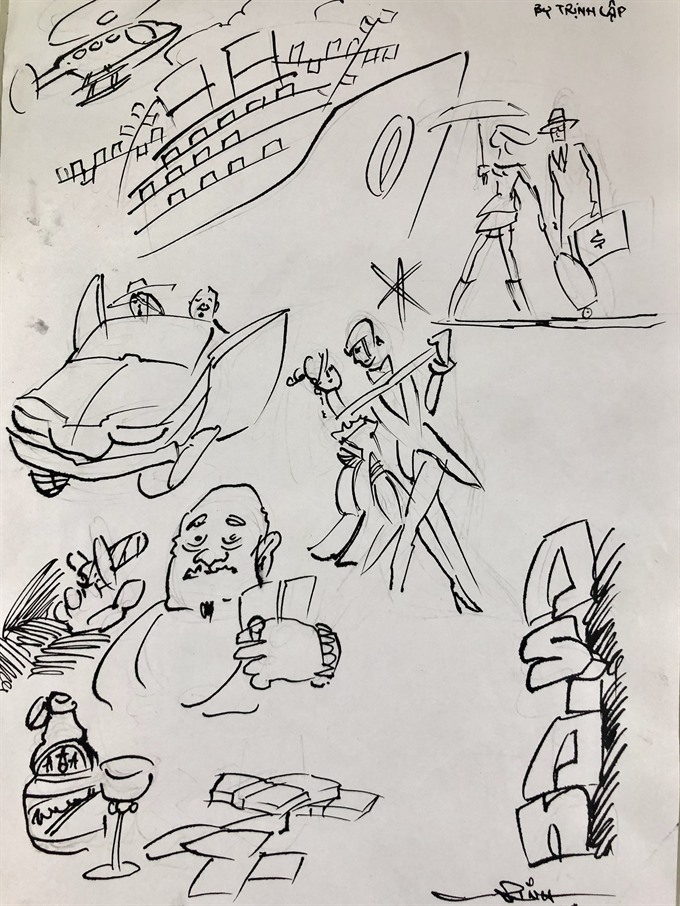 Talk Around Town
Talk Around Town

Bảo Hoa found that Crazy Rich Asians blurs the distinction between “The Orient” and “The Occident”.
 |
| Illustration by Trịnh Lập |
by Bảo Hoa
When I was in college, we were assigned to read some excerpts from the book Orientalism by American professor Edward Said for a course on modern
For the first time in my life I became aware that we, in an Eastern country, were viewed by people from the West as “The Other”, and that we were considered to be “irrational”, “exotic”, “feminine” and “inferior” to all things from the West. And I also learned how such a patronising point of view influenced the representations of people of colour, specifically Asians, in Western cinema.
Crazy Rich Asians, a recently released Hollywood production, has been praised by Western media as finally offering a portrayal of Asians that doesn’t fall into the same old Orientalist trap. Based on a novel of the same name by Singaporean author Kevin Kwan, it is the first
Since its release in August in the
Amid this media frenzy, before I saw the movie I actually had doubts about its supposed impact on the representation of Asians. From the trailer alone all I saw was some young people living a very “Western” lifestyle, wearing fashionable clothes and speaking impeccable English. I saw no reflection of any Asian society in it, and I wondered whether the praise the movie received all came from a Western perspective, and that such a movie about Asians still needed some over-the-top “wow” factors to be well-received by Western audiences.
But after sitting through two hours of the film, I realised I was wrong.
The movie contains more Asian elements than I expected, and they balance out the rather Western-centric starting point of the storyline: two grown adults who have been living in a Western country for years returning to an Asian country—or in the case of Rachel, visiting one for the first time. From the elaborate depiction of Young’s family to the subtle conveyance of family issues passed down from his grandparents, Crazy Rich Asians has painted a multilayered picture of a well-established Chinese-Singaporean family torn between the old members’ wishes to keep their traditions alive and their only heir’s modern values.
Signature Chinese dishes and music were gracefully woven into the scenes shot in
On the other hand, the film has also succeeded in portraying the luxurious lifestyle of a select few extremely privileged young people in
It is hard to say that the movie has dismissed all Western presumptions and stereotypes on “the East”, since
I like the movie and I think it’s worth watching. Not only because it gracefully highlights the characteristics of an Asian society through subtle details and anecdotes, but also because of the way it shows that the East and the West are equally complicated and beautiful, with their own sets of moral values that are equally worth contemplating.
I have read articles and watched interviews in which the movie’s cast expressed their satisfaction about how well the movie had been received and how proud they were to give more exposure to their Asian roots. I am glad they felt proud, and I hope. VNS




